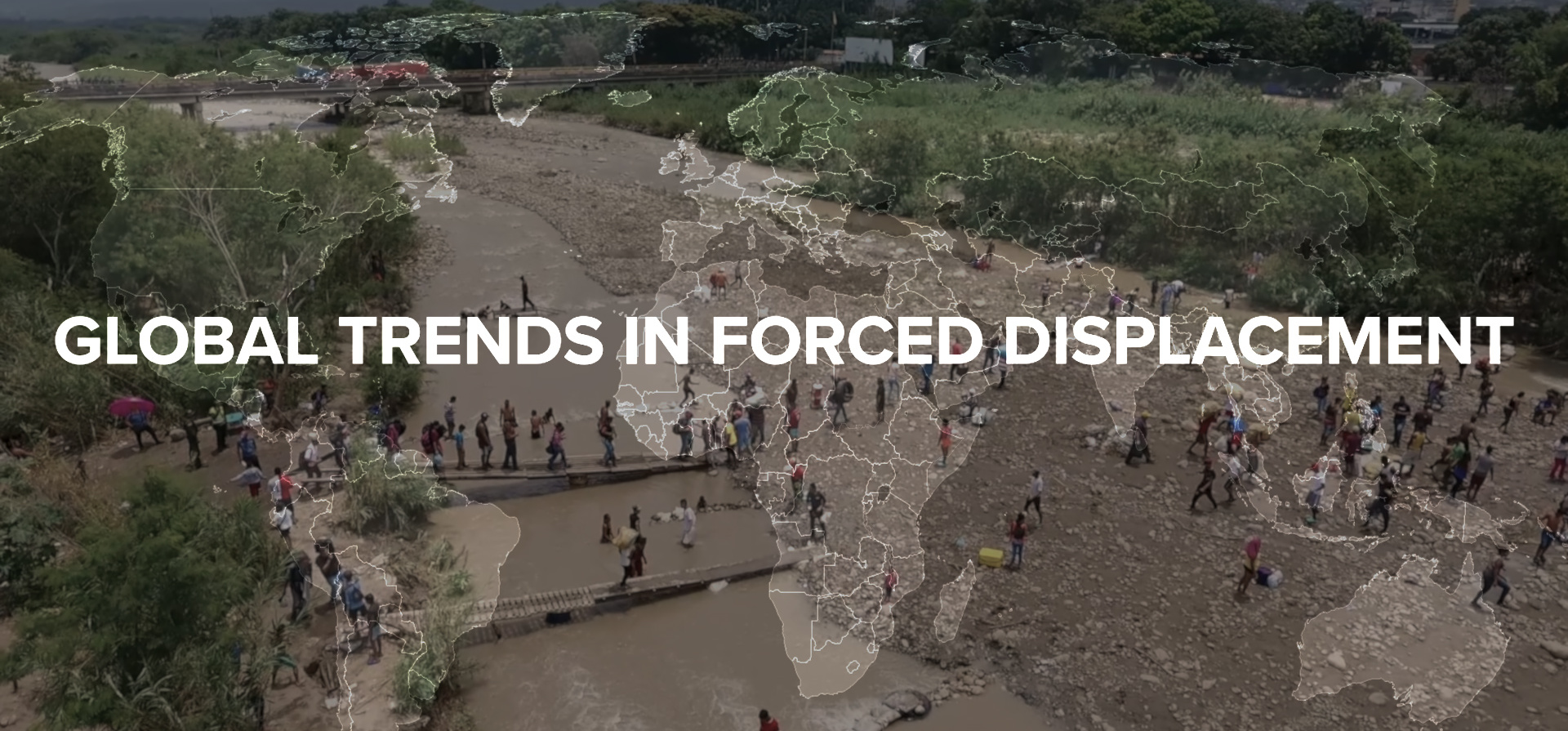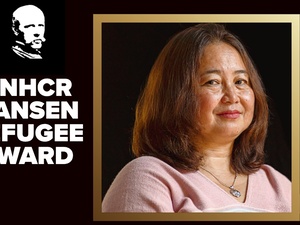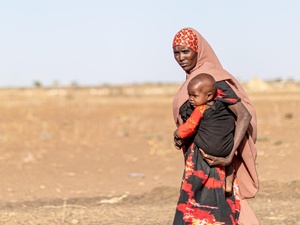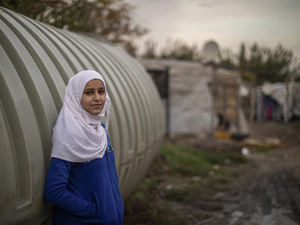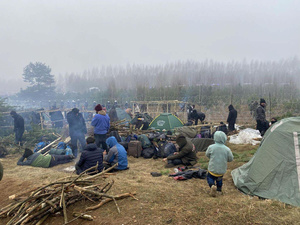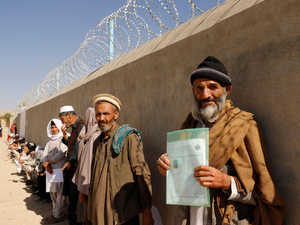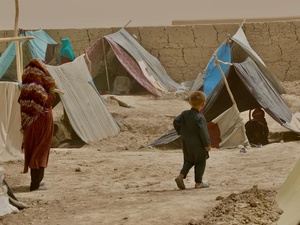Global forced displacement tops 70 million
Yet again, wars, violence and persecution have driven record numbers of people from their homes worldwide, according to the latest annual study released today by UNHCR, the UN Refugee Agency.
The yearly Global Trends report found that 70.8 million children, women and men were forcibly displaced at the close of 2018, the highest number in the organization’s almost 70-year history.
This is twice as many people as 20 years ago, 2.3 million more than the previous year, and is greater than the population of Thailand.
Worryingly, this global figure is probably on the low side. The crisis in Venezuela, in particular, is still only partly reflected in the total. In all, some four million Venezuelans have left their country, making this one of the world’s biggest current displacement crises.
"I decided to take my family out of Venezuela before another one of my children died.”
Among those who fled the deepening political, economic and human rights crisis there is Euligio Baez, a 33-year-old indigenous Warao, who took his entire family to Brazil after three relatives died.
“When my nine-month-old daughter died because of the lack of medicines, doctors or treatment, I decided to take my family out of Venezuela before another one of my children died,” he said.
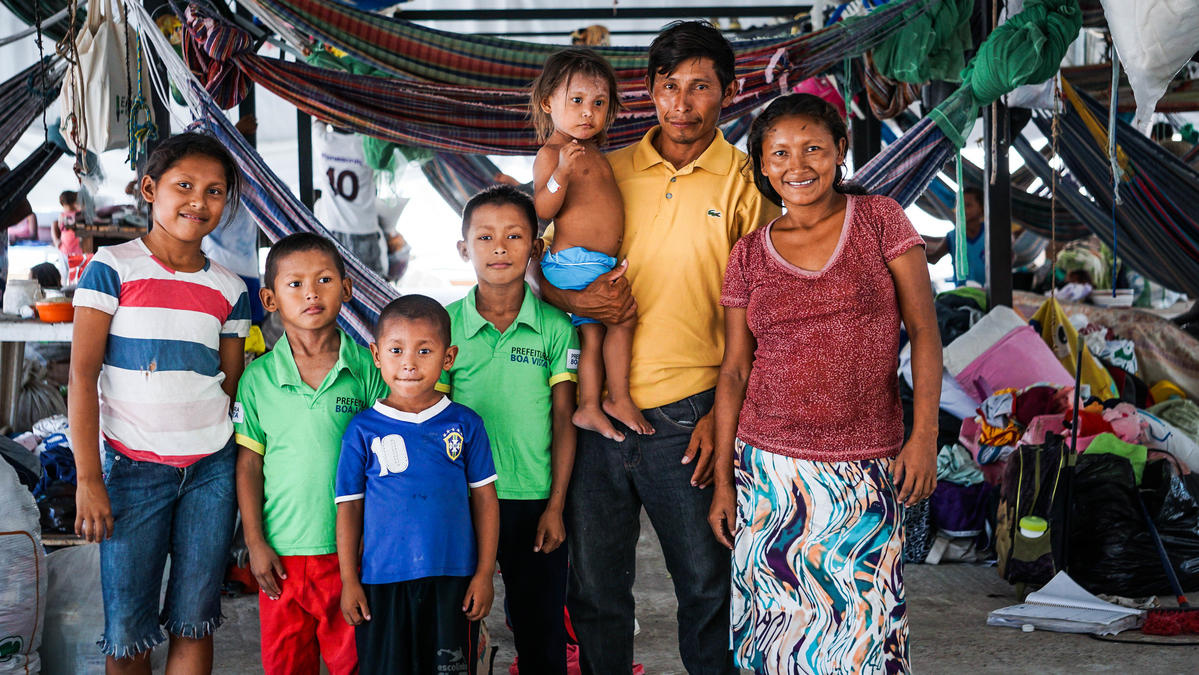
Euligio Baez, a Warao leader from Venezuela, poses with his family in Boa Vista, Brazil, April 2019.
Although the majority of Venezuelans are in need of international refugee protection, as of today only around half a million have taken the step of formally applying for asylum.
The increased global figure gives further confirmation of a longer-term rising trend in the number of people around the world needing safety from war, conflict and persecution, UN High Commissioner for Refugees Filippo Grandi said.
Grandi stressed that while language around refugees and migrants is often divisive, not all is bleak. He noted an “outpouring of generosity and solidarity,” especially by communities who are themselves hosting large numbers of refugees.
“We are also seeing unprecedented engagement by new actors including development actors, private businesses, and individuals, which not only reflects but also delivers the spirit of the Global Compact on Refugees,” he said.
“We must ... redouble our solidarity with the many thousands of innocent people who are forced to flee their homes each day.”
Approved by the UN General Assembly in December, the Global Compact seeks a more equitable sharing of responsibility for hosting and supporting refugees, about 80 per cent of whom live in countries neighbouring their place of origin.
“We must build on these positive examples and redouble our solidarity with the many thousands of innocent people who are forced to flee their homes each day,” the High Commissioner added.
Big displacements across international borders are not as common as the 70.8 million global total implies. Almost two thirds of those uprooted from their homes are internally displaced people, or IDPs, who have not left their homelands. Of the 25.9 million refugees, nearly one in five are Palestinians under the care of UNRWA.
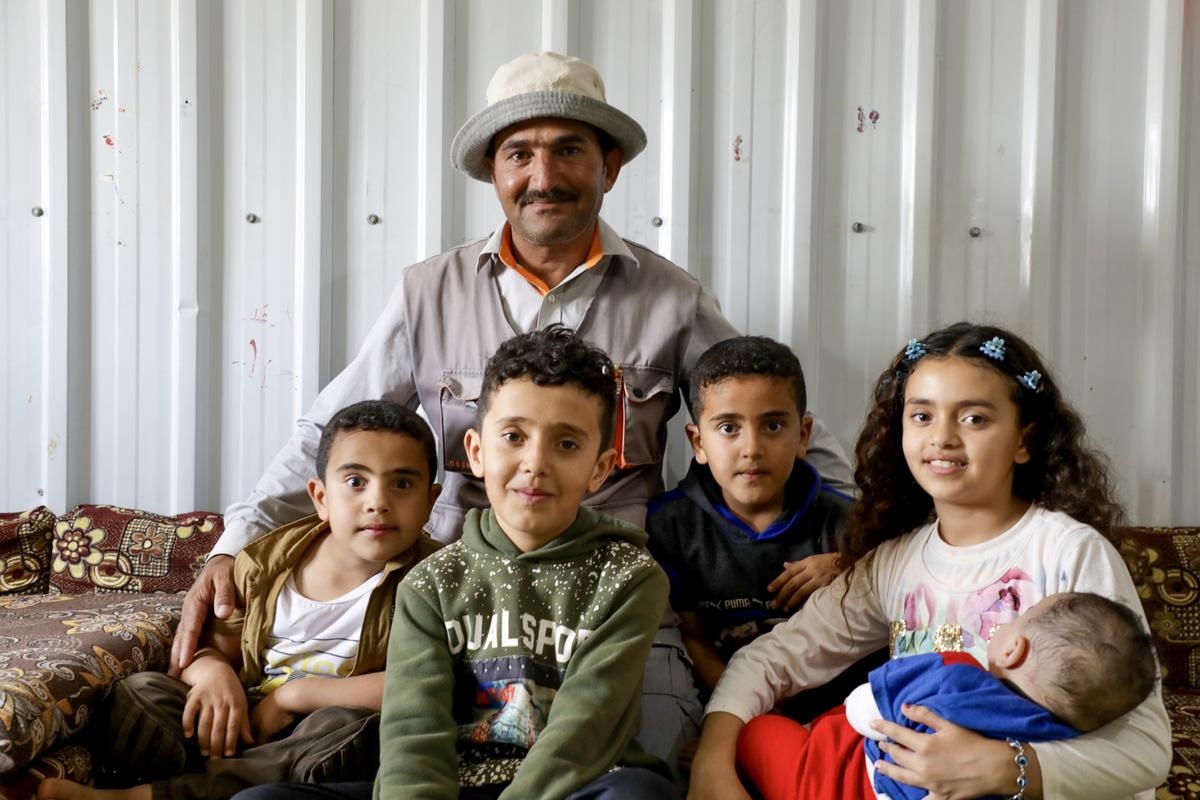
Syrian refugee Abdullah and his children pictured in front of the family's shelter in Azraq refugee camp, Jordan.
Overall, an estimated 13.6 million people became newly displaced during the year due to wars or persecution, a number equivalent to the population of Tokyo, and greater than that of Moscow and Manila. The total included 10.8 million IDPs and 2.8 million new refugees and asylum-seekers.
The growth in displacement continued to outpace the rate at which solutions are being found for people who become displaced. With refugees, the best solution is being able to return home voluntarily, in safety and dignity.
"We are yearning to see our country safe once more and to go back home.”
That hope remains uppermost for father-of-five Abdullah, a Syrian refugee who has lived in the same white, metallic shelter at Azraq refugee camp in Jordan since fleeing the war at home in July 2014.
“For most Syrian refugees, our driving hope and purpose is to go back,” he says, noting that ongoing conflict, compounded by lack of work, medicines and food in Syria, has made that return elusive. “We are yearning to see our country safe once more and to go back home.”
Additional reporting by Allana Ferreira in Brazil and Charlie Dunmore in Jordan.


